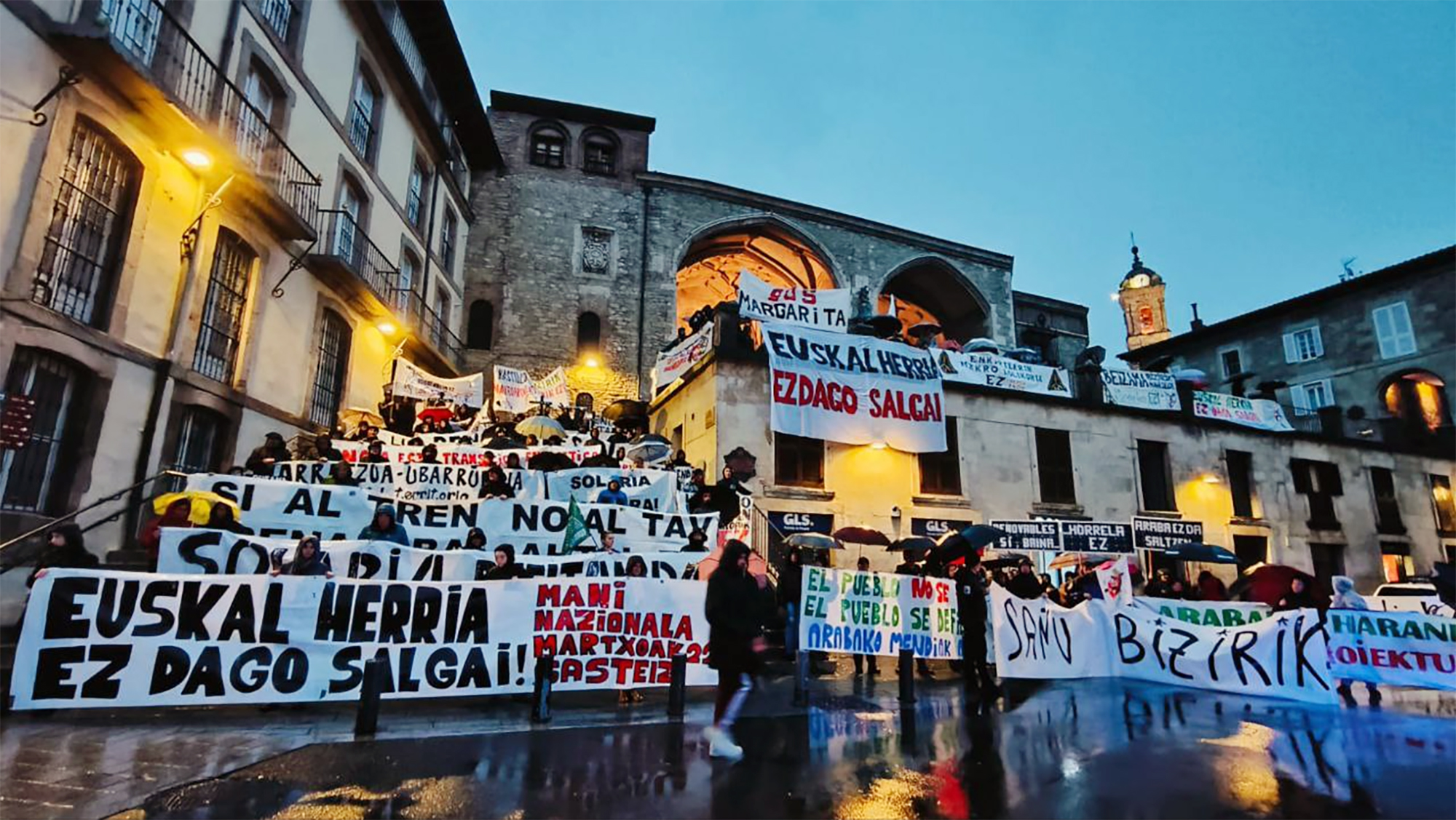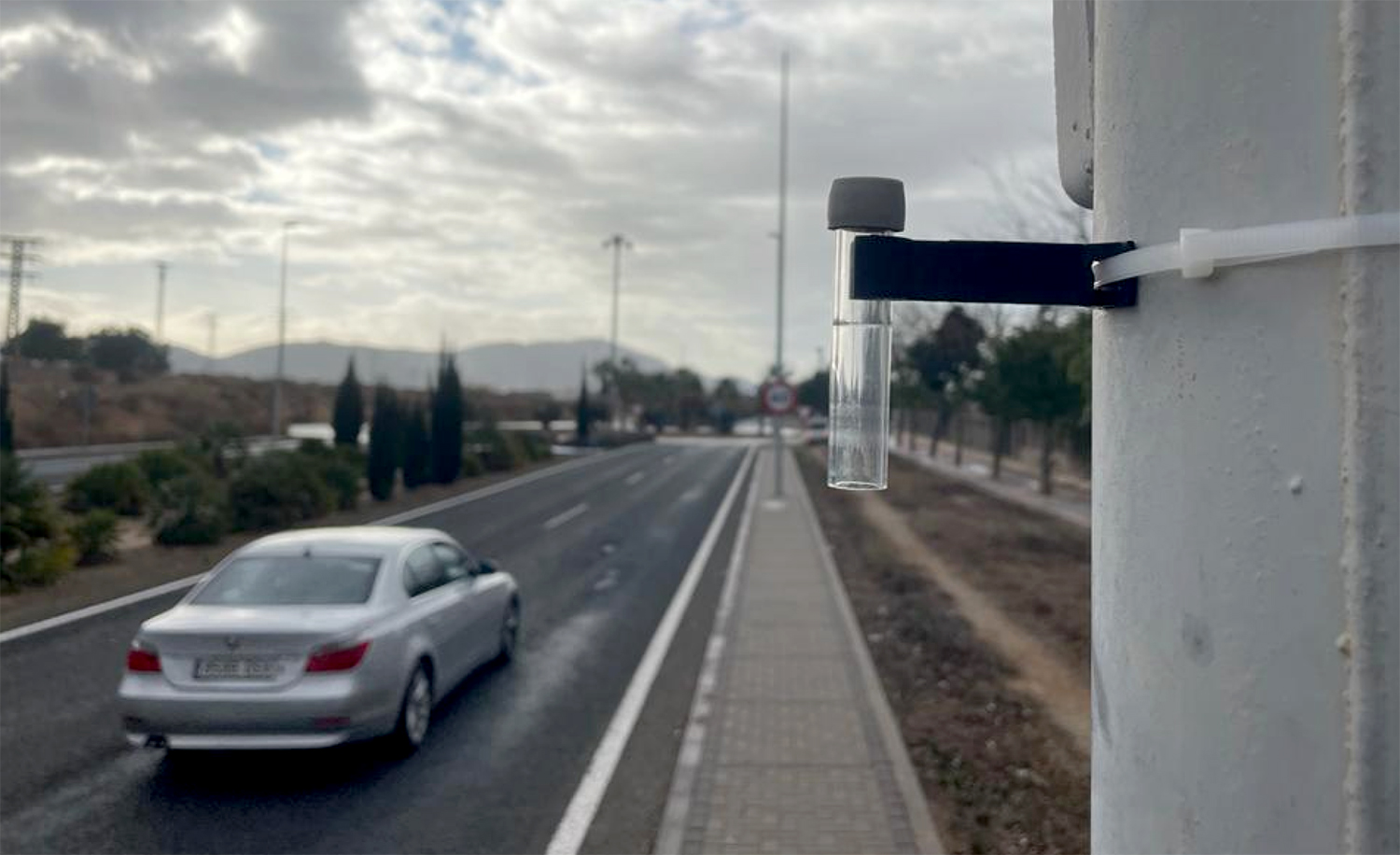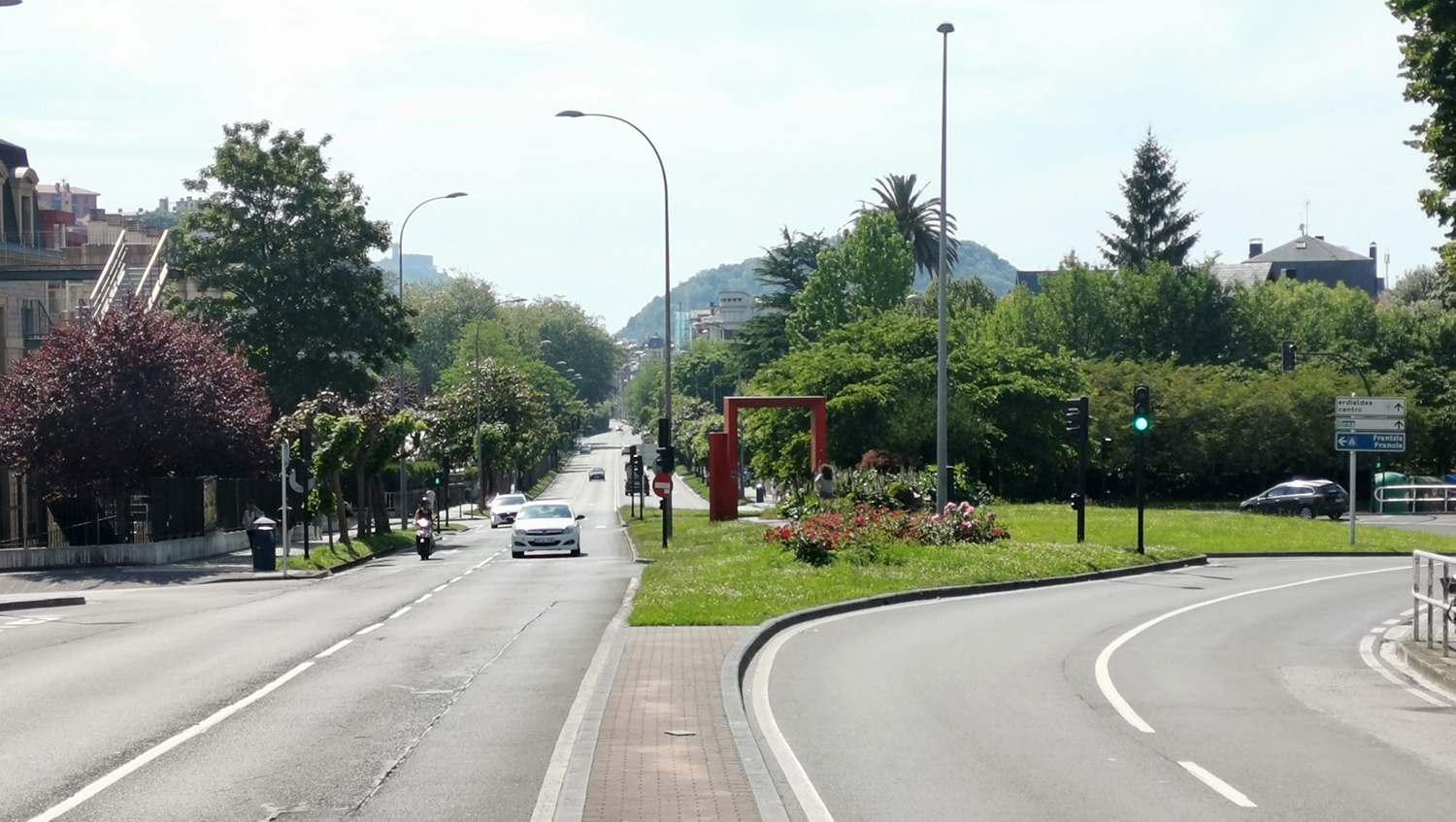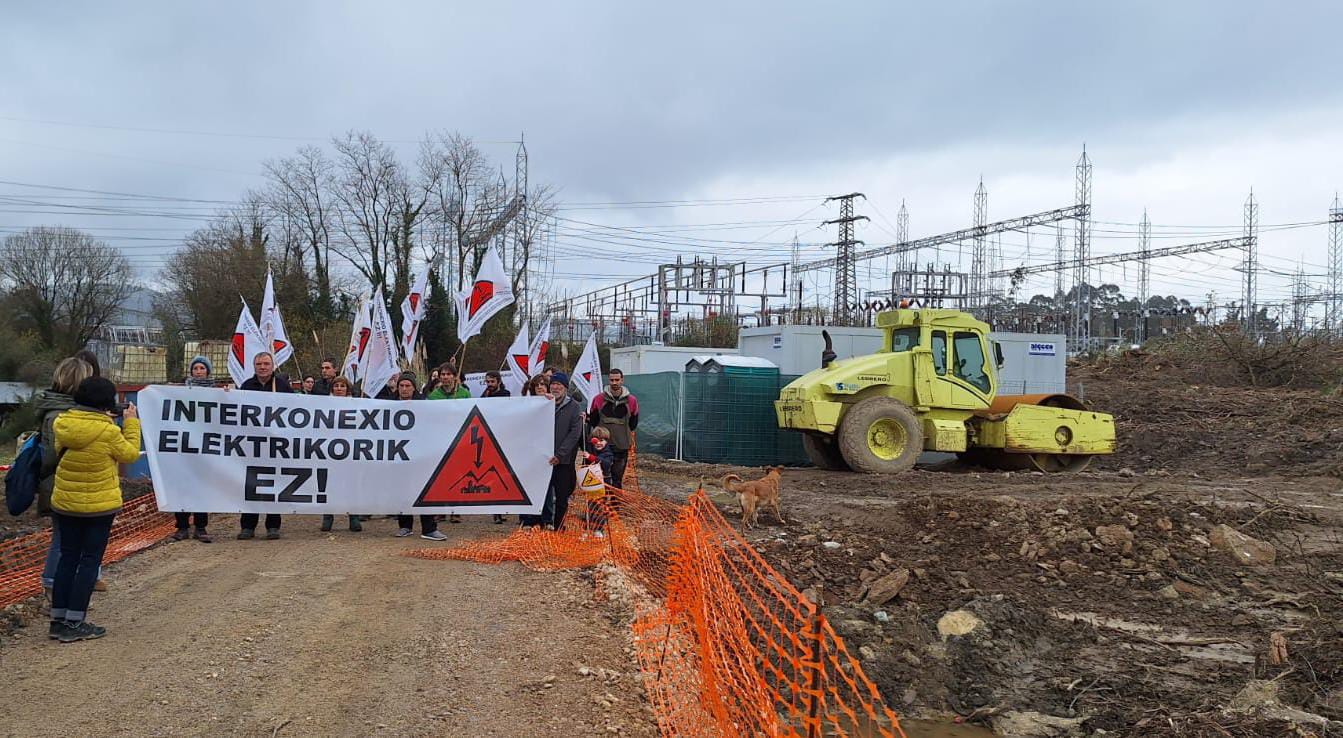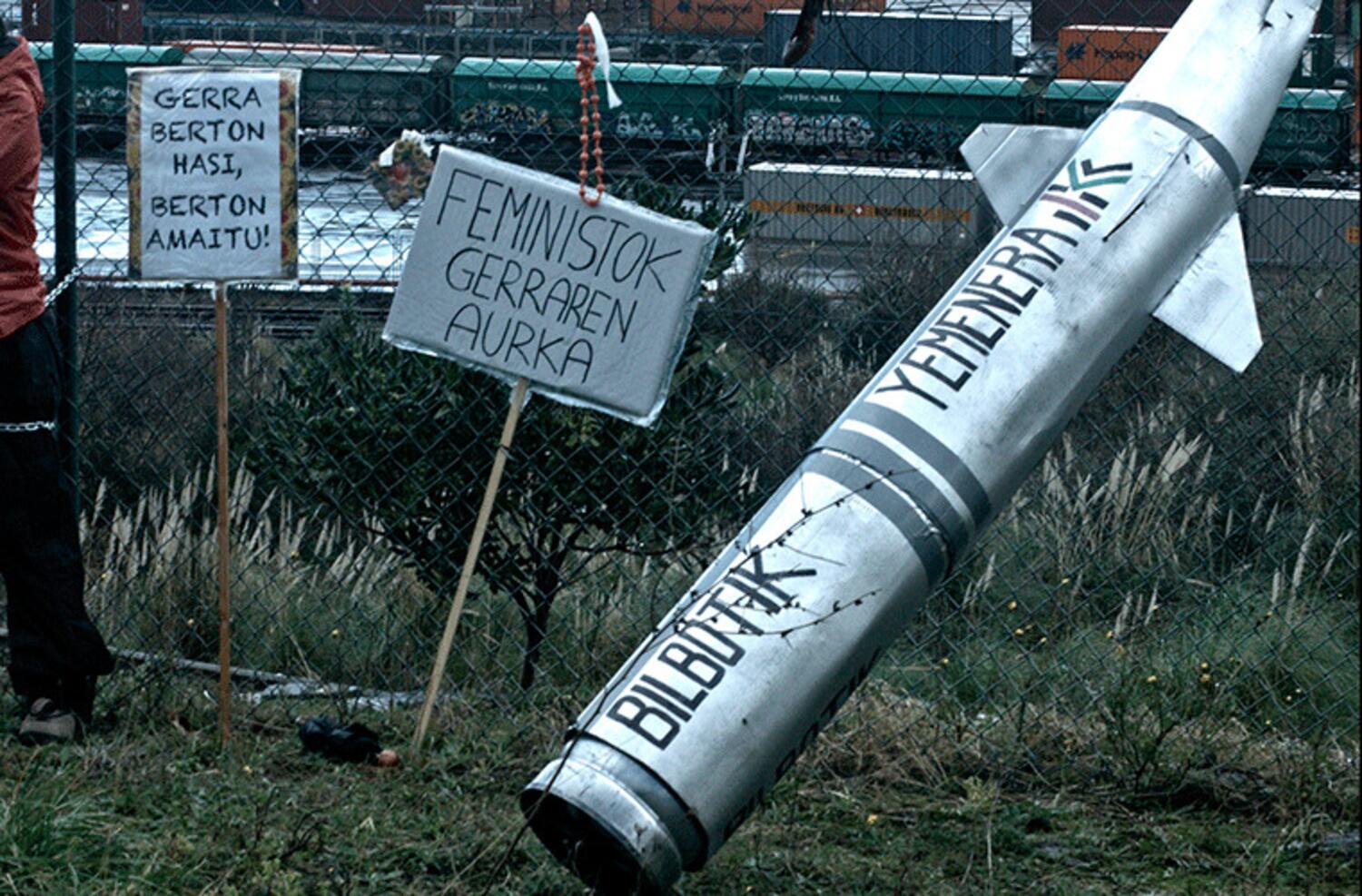Eco-Alternative Experiences: Incorporating Alternatives to Contradiction
- In the course Weaving communities from popular initiatives, the third table of the section was the one corresponding to the environmental struggles. On the one hand, the main results of the reflection on Euskera have been collected; on the other hand, those who have worked in the field of feminism; and, in general, the main results around the national construction. Next time we will deal with issues relating to the struggle against racism.

Professor at the UPV/EHU Josu Larrinaga Arzak revealed the most significant results of the research in this field. The study was carried out by analyzing the movements and initiatives that are taking place in the environmental space throughout Gipuzkoa. Above all, making a direct observation of the initiatives and interviewing the members of the movements.
Larrinaga left the environmental movement and spoke of “eco-alternative experiences”. The concept deserves explanation. In this large area of popular construction, in addition to the “classical” actions based on opposition to destructive projects or large-scale mobilizations, other initiatives are being developed, according to the study, increasingly relevant. People who want to build life in general or concrete aspects of it in alternative keys such as consumption, energy or housing. Building visions have gained strength in the face of traditional opposing struggles, but with them in general.
As for internal organization and forms of militancy, voluntary activism predominates. There are also employees, mainly in the social and solidarity economy. It is almost all the assembly movements that demand horizontality and that decentralized forms of work prevail. The importance given to the internal processes along this road has increased and new developments have been developed in the methodologies of dynamization.
Eco-alternative movements place the path of transformation in their initiative and in their capacities. The relationship with companies and institutions is often weak and bad, and the shock is common. Although during the years that EH Bildu ruled the Provincial Council, expectations increased, the critical assessment is noticeable. The research has identified more diverse realities at the municipal level. There are some achievements, even if the relationship is fluctuating. With the forces that feel politically closer, these relationships are easier when they are in opposition than when they are governing. Teams and people involved in the construction of alternative projects have richer relationships with the closest institutions, especially with technicians, although the personal dimension has a lot to do with it.
Larrinaga believes that platforms and collaborations between eco-alternative movements would be common. Weaving and mapping are “key words” in their activity. There are also mutual criticisms and mistrust and collaboration in general yes, but it does not always yield positive results. Beyond the scope of eco-alternatives, the ecologist approach has gained presence in other organizations and initiatives of popular construction. In this sense, the study highlights the alliance between feminism and environmentalism.
The concern for gender oppression in eco-alternative movements is very great, according to the study conducted. In terms of number, women are the majority in many groups, not only have they been discussed, but strategies and tools have also been developed to promote parity both internally and externally.
Movements defend diversity as a positive value: ideological, origin, economic or age, for example. The group is not usually as large, while what is achieved in the initiatives or in the network would be richer. The greatest weakness would be in the presence of migrated people and scarce economic resources.
Housing: promoting the use value
Ana Revuelta Andrés explained in the second part of the talk the details of the Abaraska Cooperative Housing project. Abaraska is still in the process of definition, it is not a material reality. The group consists of about 60 people, between 28 and 60 years old. They want to develop an alternative life model in a common building, stimulating its causes: economic or ideological. The main references have been found in cooperative housing in Denmark and Uruguay, although Revuelta also cited La Borda (Barcelona) or the Sunrise of Bilbao.
The member of Abaraska claimed housing as a right, but dissociating the right to private property. Its model is the assignment of use: housing built on public land, limited to the right of use. The owner would always be a cooperative. Given that they give importance to the local, they think about the neighborhood dimension, with the objective of constructing an exchange relationship with it.
Self-organization is the basis. They are organized into numerous working groups that reflect the importance given to the process: Kutxipandi (coexistence), Communication, Arkifrikis (architectural project), Economy and Tinder (institutional relations), etc. They promote the transversality of feminism, bet on bioconstruction and seek the conciliation of common and private spaces. Funding shall be based on contributions from individuals and entities, as well as on solidarity and ethical financial organisations.
Do not look for this connection from Ezkio or Altsasu, let alone crossing the Ebro River through Castejón. The connection, or rather the connections, between the Basque Y and the AVE of Navarre is already a reality. It is these links in the plural that should concern us and... [+]
Euskal Herri osoan zehar daude mehatxupean hamaika baso, zelai, mendi zein nekazal lur. Horien defentsan diharduten tokian tokiko plataforma asko bildu dira larunbatean Gasteizen, EH Bizirik-ek deituta, inguru naturalaren “suntsiketaren” eta makroproiektuen... [+]
Dakota Access oliobidearen kontrako protestengatik zigortu du Ipar Dakotako epaimahai batek erakunde ekologista, Energy Transfer Partners enpresak salaketa jarri ostean. Standing Rockeko sioux tribuak protesten erantzukizuna bere gain hartu du.
Sareak nabarmendu du Euskal Herri osoko eragileak daudela bertan eta deialdiak 140tik gora atxikimendu jaso dituela: "Horrek islatzen du zein den gaur egungo errealitatearen urgentzia, lurraren defentsaren beharra eta auziarekiko dagoen konpromezua".
Greenpeaceko kideak Dakota Acces oliobidearen aurka protesta egiteagatik auzipetu dituzte eta astelehenean aztertu du salaketa Dakotako auzitegiak. AEBko Greenpeacek gaiaren inguruan jasango duen bigarren epaiketa izango da, lehenengo kasua epaile federal batek bota zuen atzera... [+]








